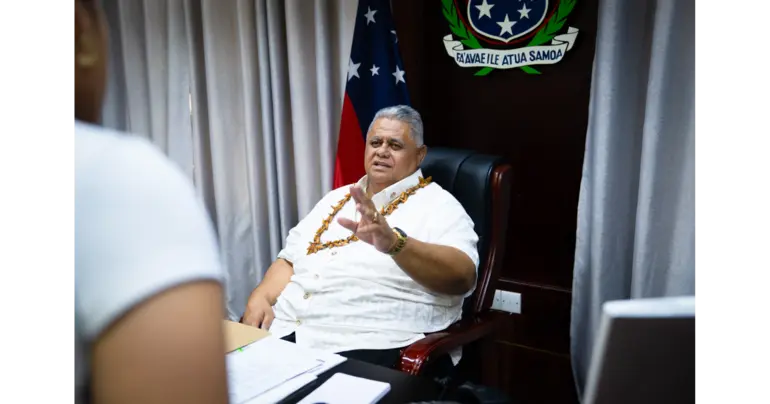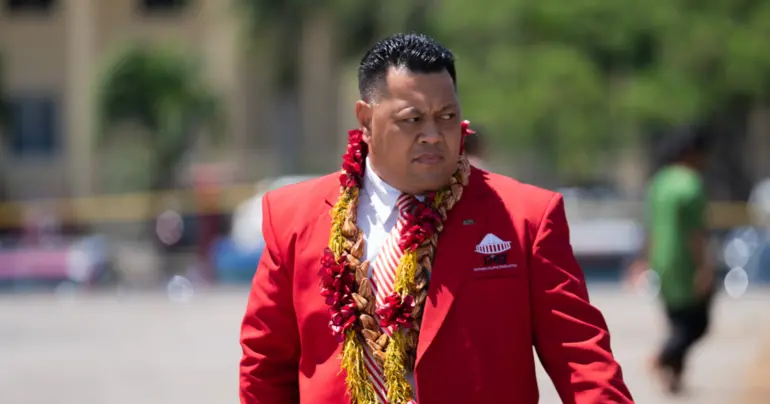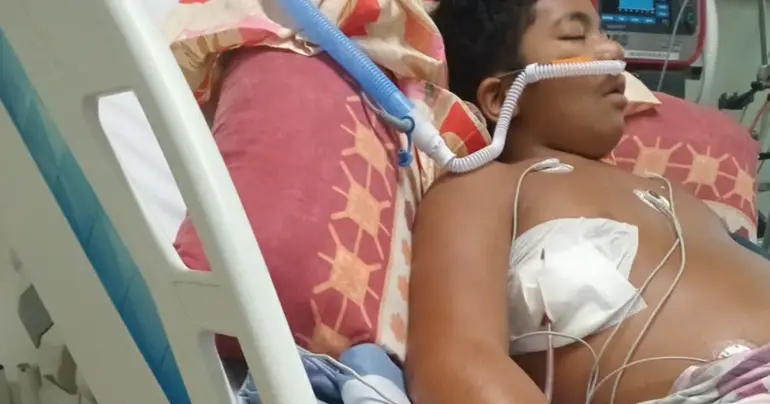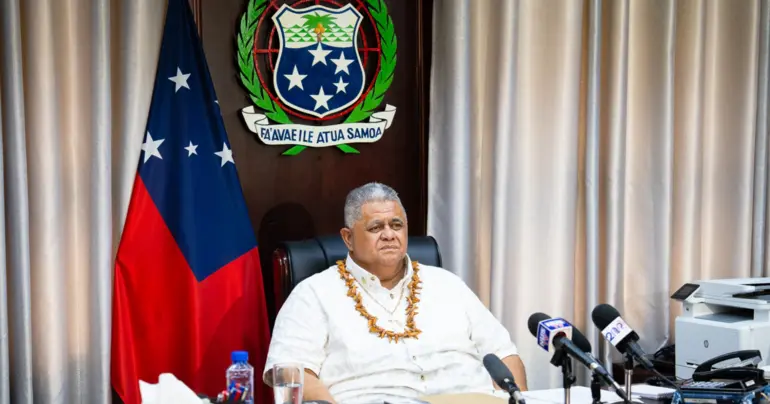Schoolchildren vaccinations to become compulsory
 By Joyetter Feagaimaali'i
•
15 November 2019, 11:00AM
By Joyetter Feagaimaali'i
•
15 November 2019, 11:00AM
The Ministry of Health says children will required to be immunised before they can enroll in schools, as it combats a growing measles epidemic.
“The way things are going and the background of poor [immunisation] coverage we can say we are anticipating [the] worst [ever] outbreak,” said Director General and Chief Executive Officer of the Ministry of Health, Leausa Dr Take Naseri.
He explained that as a result the Cabinet has issued a directive requiring that children must be immunised before they can enroll at schools.
“I know for a fact with the epidemic all the mothers are rushing to immunise their children and it’s sad that it took the loss of life to prompt this,” he said.
He called on mothers to be proactive like women in American Samoa.
“If you talk to these mothers; when inquiring for the immunisation card, they reach into their purses and fork it up; compared to us, you see bingo papers and I am talking about the young mothers.”
The last time Samoa encountered a measles outbreak in 1985, more than 1,000 people were affected. However, there were little-to-no records of any deaths at that time.
So far the latest epidemic has led to a total of 716 suspected and 48 confirmed (via blood tests sent overseas which can take weeks to process) cases of measles with 40 per cent admitted to hospitals.
During the press conference, Leausa explained that 98 patients had been admitted to the Moto’otua hospital; 29 were admitted to district hospitals and 17 were admitted at the Intensive Care Unit and the isolation wards.
“As of yesterday [Wednesday] six are confirmed dead and are linked to the measles and from that six; five are below the age of two and there’s an eight month old. And they were all un-vaccinated, yet two had no history. Measles carries a high mortality [rate] if you are vulnerable or not immunised against measles,” Leausa said.
Given the increasing numbers of suspected cases, the Director General was asked whether a “State of Emergency” was warranted but Leausa said there is a scale in order for that declaration to be made.
“There is no need to cause unnecessary panic amongst the population. The Government is briefed daily and we are now working (and) getting assistance from overseas and it depends on the disaster advisory and the medical experts’ advice,” he said.
Leausa assured the Ministry is well stocked with doses of M.M.R.
“We are expecting another 50,000 doses and we got another 3,000 last night and 20,000 on the way; the doses are being replenished,” Leausa said.
"And we are also demanding our final and last slot of the year to be expedited, in anticipation this epidemic will protract and considering that 30 percent of the population have not been vaccinated for over 10 years; then it is something to cater for.
“In going forward it will not be easy battling measles, due to the fact that it has been 15 years and yet the [immunisation] coverage is poor.”
Leausa explained that parents have neglected immunising children until the epidemic. Consequently, they are rushing to vaccinate their children, minimising the chances that the vaccinations will take effect in time.
“Another issue we take note of are stillbirth babies and it depicts the reality [if] the mother did not get herself immunised. If she did the protection would have been passed on to the unborn baby,” he said.
According to Leausa, Tonga and American Samoa’s coverage have more than 90 per cent of coverage.
“For us, back in 2009, our coverage was 41 per cent and we have been trying to increase the coverage and currently our immunised population is 60 per cent, it means one-third of our population is vulnerable,” he said.
He said the Ministry is prioritising children from six months to four years old; 15 to 19 and women of childbearing age in order to protect women and their unborn child between the ages of 20-45.
Leausa stressed the importance of the public making use of private clinics for illnessed unrelated to measles.
He reiterated the lack of immunisation for children comes down to the responsibility of the parents: “There is no law that legalises the arrest of anyone and if this was communist country, an order comes in [the people will heed].”
The immunisation program which kicked off in April and will continue throughout the year.
Leausa also made it clear that the incident in Savaii (where two babies died as a result of the wrong mixture) was a setback for the vaccination programme, especially M.M.R. Another factor is the absence of women’s committees in the villages, which has now been revived.
Today the Children’s Clinic and the Outpatient Clinic at the Tupua Tamasese Meaole (T.T.M) Hospital will open for 24 hours to cater for children suspected of having measles. It has been converted into a ward.
Emergency cases will be treated at the Emergency Unit and it remains open 24 hours a day.
He said that about five doctors are on duty each shift as a result of the epidemic.
The Director General also warned the public against turning to remedies that are being made available on social media.
“Isolation in the homes is one of the prevention measures for measles,” he said.
He pointed out that once an unimmunised child contracts pneumonia as a result of measles it becomes difficult to recover, as the body does not have the immunity to reject the virus.
The Ministry of Health has also set up a coordination office to provide daily updates for public knowledge, the Director General added.
 By Joyetter Feagaimaali'i
•
15 November 2019, 11:00AM
By Joyetter Feagaimaali'i
•
15 November 2019, 11:00AM











